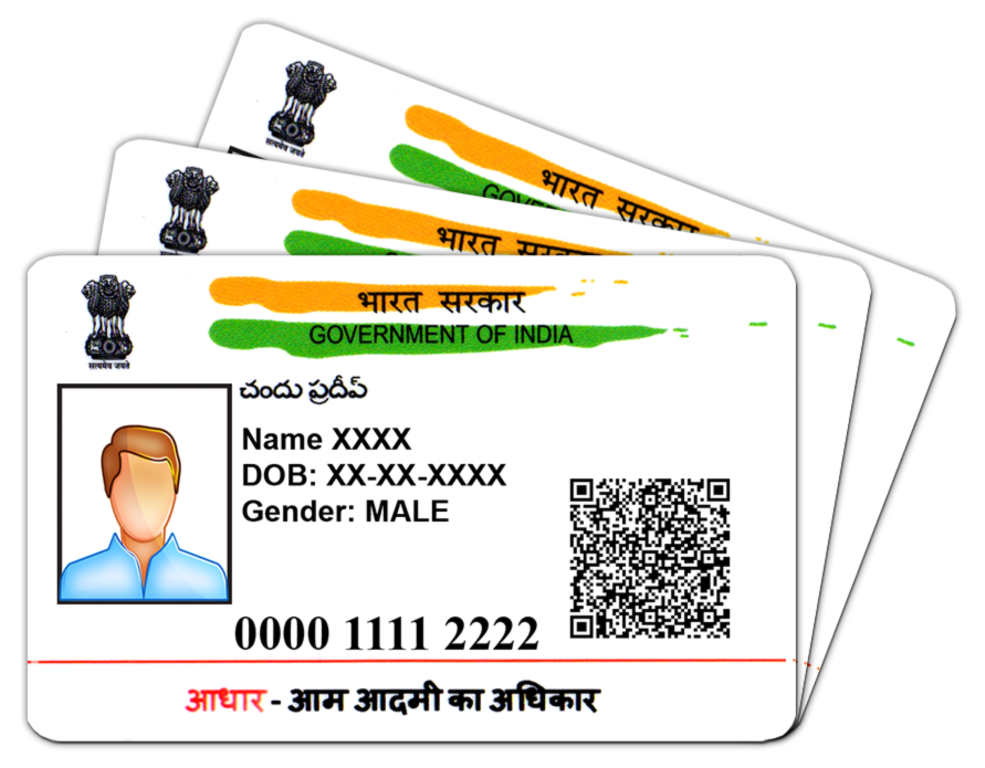The problems of Aadhaar
January 11, 2018 | Expert Insights

India’s Supreme Court raised concerns over how the Aadhaar number will benefit the poor of the nation. It asked the government how the initiative will help the 1.77 million homeless people in India as the Aadhaar card cannot be issued in the absence of a permanent address.
The government plans on linking social welfare schemes to the Aadhaar card. The Supreme Court is also presently hearing a number of petitions expressing concern over whether the issuance of this card infringes on the individual’s privacy.
Background
Aadhaar is a 12 digit unique-identity number issued to all Indian residents based on their biometric and demographic data. The data is collected by the Unique Identification Authority of India (UIDAI). The Central Government contended before the Supreme Court on May 3rd, 2017 that it is mandatory for the citizens to have a unique identification number and hence a person cannot refuse to provide their samples of fingerprints and iris.
The idea of Aadhaar card was introduced by Nandan Nilekani on 26th November of 2012. The vision behind it was to empower residents of India with a unique identity and a digital platform to facilitate authentication.
On June 2017, the Supreme Court passed an order on compulsory linking of an individual’s income tax PAN and Aadhaar numbers. The central government has stood firm on giving welfare benefits only for those with Aadhaar after 30 June. The government claims that by linking the Aadhaar with PAN, authorities will be able to crack down on people who are escaping the tax net.
Since December 2017, five judges of the Supreme Court have begun hearing a number of petitions that want the court to stop the government from forcing people to link their Aadhaar number to access public services and benefits. As a result of these hearing, the Supreme Court extended the deadline to link the Aadhaar number to public and private services to March 31st, 2018.
Analysis
India’s Supreme Court raised concerns on how the Aadhaar number will benefit the poor of the nation. It has asked the government to provide clarity on how initiative will help the 1.77 million homeless people in India given that the Aadhaar card cannot be issued in the absence of a permanent address.
This is part of a wide-ranging number of cases that Supreme Court is presiding over with regards to the Aadhaar card. Multiple petitions have been filed asking the court to stop the government from forcing individuals to link their Aadhaar cards to private and public services. Indians are presently required to link their bank details and their phone numbers to the initiative.
During a hearing regarding a lack of night shelters for the homeless, the court summoned the Uttar Pradesh Chief Secretary. While the hearing was underway, the official was asked if a person must have an Aadhaar card in order to access welfare services. He noted in the affirmative. At that point Justice Madan B. Lokur, who heads the Social Justice Bench asked, “Does this mean that they [the homeless] do not exist for the Government of India?” The court further asked, “How can a homeless person get an Aadhaar card? If he doesn’t have an Aadhaar card, he doesn’t exist in the eyes of the government?”
The final hearing regarding Aadhaar cards is set to take place in a few weeks in the Supreme Court. Recently, a news organization reported that they were able to gain access to private Aadhaar data by paying Rs 500 to a WhatsApp group. The UIDAI has denied this and claimed that the details are secure.
Details of the alleged breach can be found here. There have been multiple breaches on organizations and structures across the world in the recent years. Institutions like Equifax and Uber have been hacked and private details have been accessed as a result of it. Additionally, a group of researchers claim that there are a series of security flaws in WhatsApp thus making group chats more vulnerable to breaches.
Assessment
Our assessment is that the most important issue in the Aadhar matter is lack of trust in the state. There is an imminent fear that a state might change its role from being a protector of people to one of a predator. This is extremely dangerous; we have often seen this happen in movies like ‘Enemy of the state’. We believe that there is also a serious concern over security. It is conclusively proven that all data can be hacked, and nothing is truly entirely safe from breaches. In such a scenario, why would the government risk the identity and private data of over a billion Indians?
Read more: Mandatory requirement of Aadhar Card








Comments